New play ‘This is Treatment’ is a journey of healing for women of color
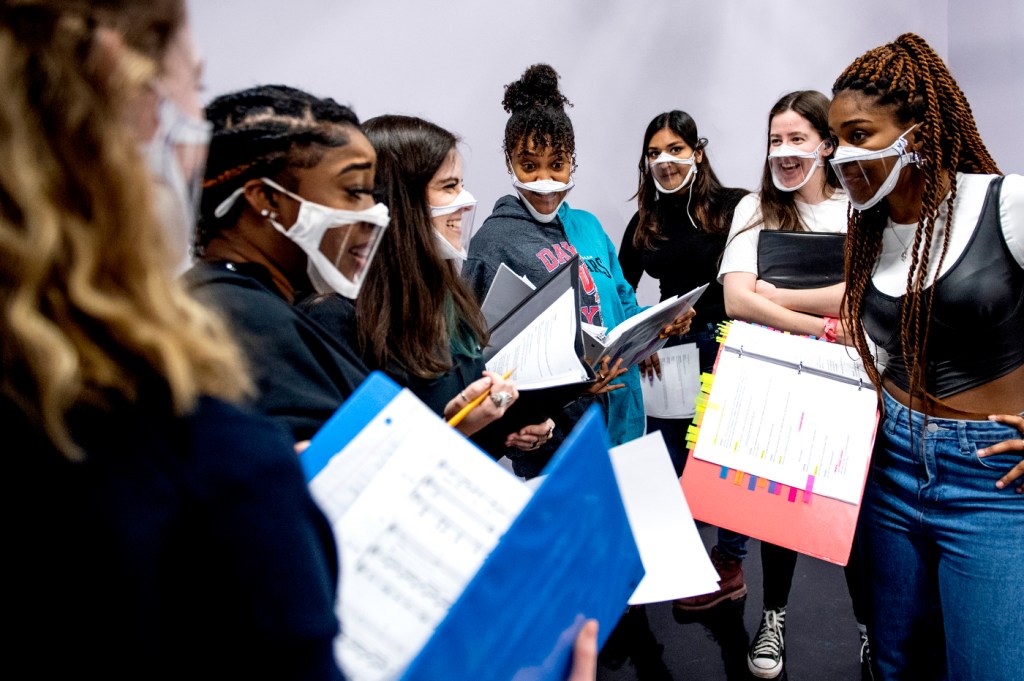
Elizabeth Addison remembers the moment she realized she wanted to write and direct musicals.
She was 13 years old, sitting in the back row of the Shubert Theatre in Boston, watching the 2005 hit show “Rent” for the first time.
“I remember it so vividly, because there’s a moment right when the power blows and then the show just explodes. And I felt, for the first time…” Addison trails off, clearly reliving the experience.
“I get chills thinking about it,” she laughs. Then continues, “I felt very much seen. Very much like this is the thing that I want to do with my life.”
She didn’t get encouragement or help tackling her newfound calling, however. As a teenage Black girl dealing with trauma, the message she received from the world was, “That’s not a dream you can have,” Addison says.
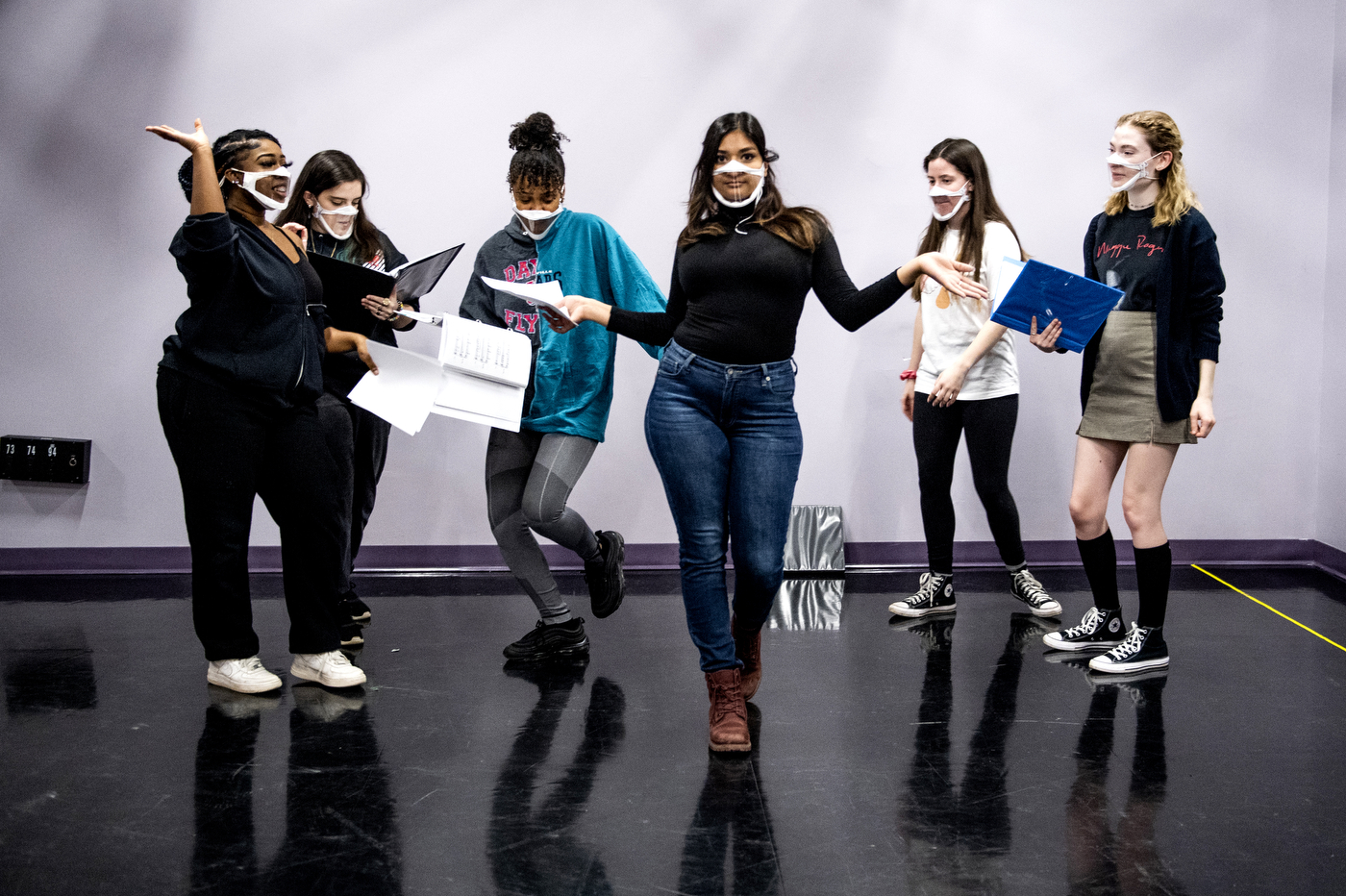
Now an established director, playwright, and actor in Cambridge, Massachusetts, and a guest artist at Northeastern, Addison seeks to change that with her musical, called “This is Treatment.” The production, which opens at Northeastern on March 31, is a deeply personal representation of women of color struggling to break away from addiction, and work toward healing.
“There was a lack of representation around Black and brown women in treatment and dealing with substance-use disorder and mental-health issues,” says Addison, who was addicted to alcohol until she sought treatment when she was 28. “There weren’t stories like this being seen when I was younger. I hadn’t seen any of them, especially in this way that honored these women. I had to create the representation that I wanted to see.”
Antonio Ocampo-Guzman, chair of the Department of Theatre at Northeastern, says he met Addison through a mutual friend and asked her to bring the play to the university.
“We immediately began to think about producing the play here, not just to highlight the stories of Black and brown women through our production program, but also to amplify Northeastern’s research into the intersection of arts and public health, and the arts as an intervention in social and racial inequality,” Ocampo-Guzman says.
Most performances in Northeastern’s Studio Theatre will include a discussion after the play about healthcare, social justice, and ongoing disparities when it comes to treatment and people of color. Local recovery coaches, wellness councilors, and residents from Mission Hill and Roxbury are just a few of the people scheduled to speak.

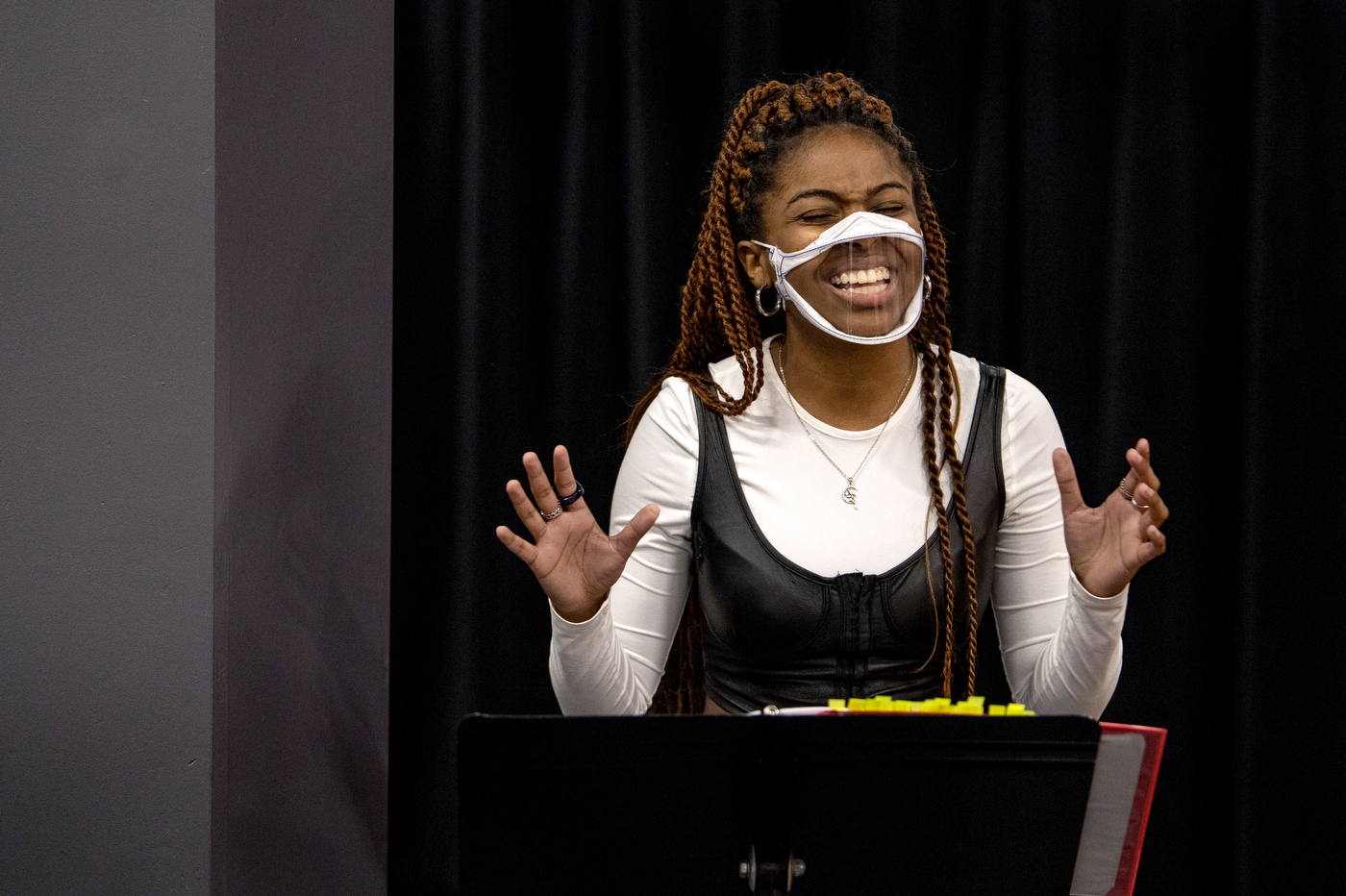
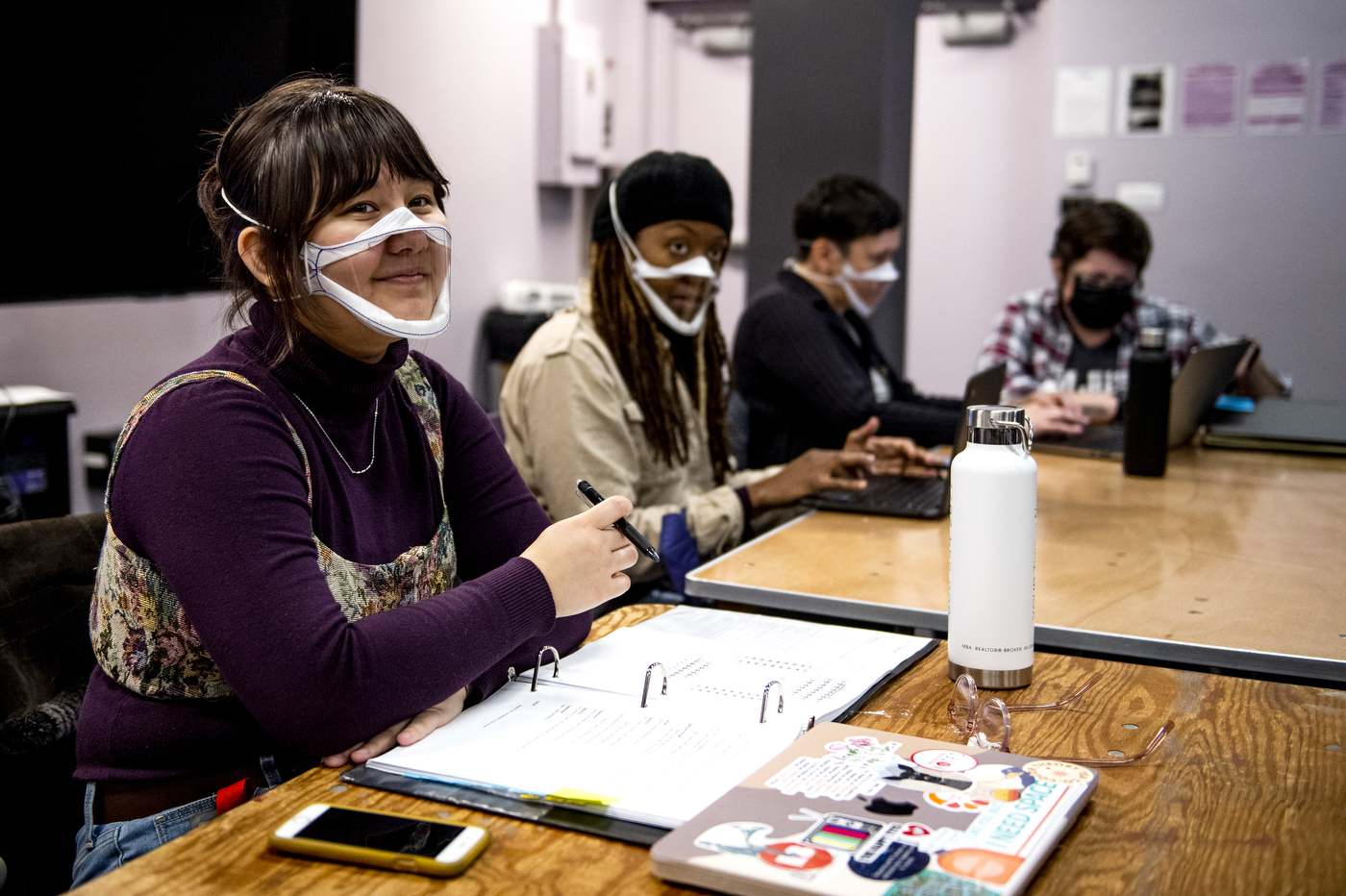
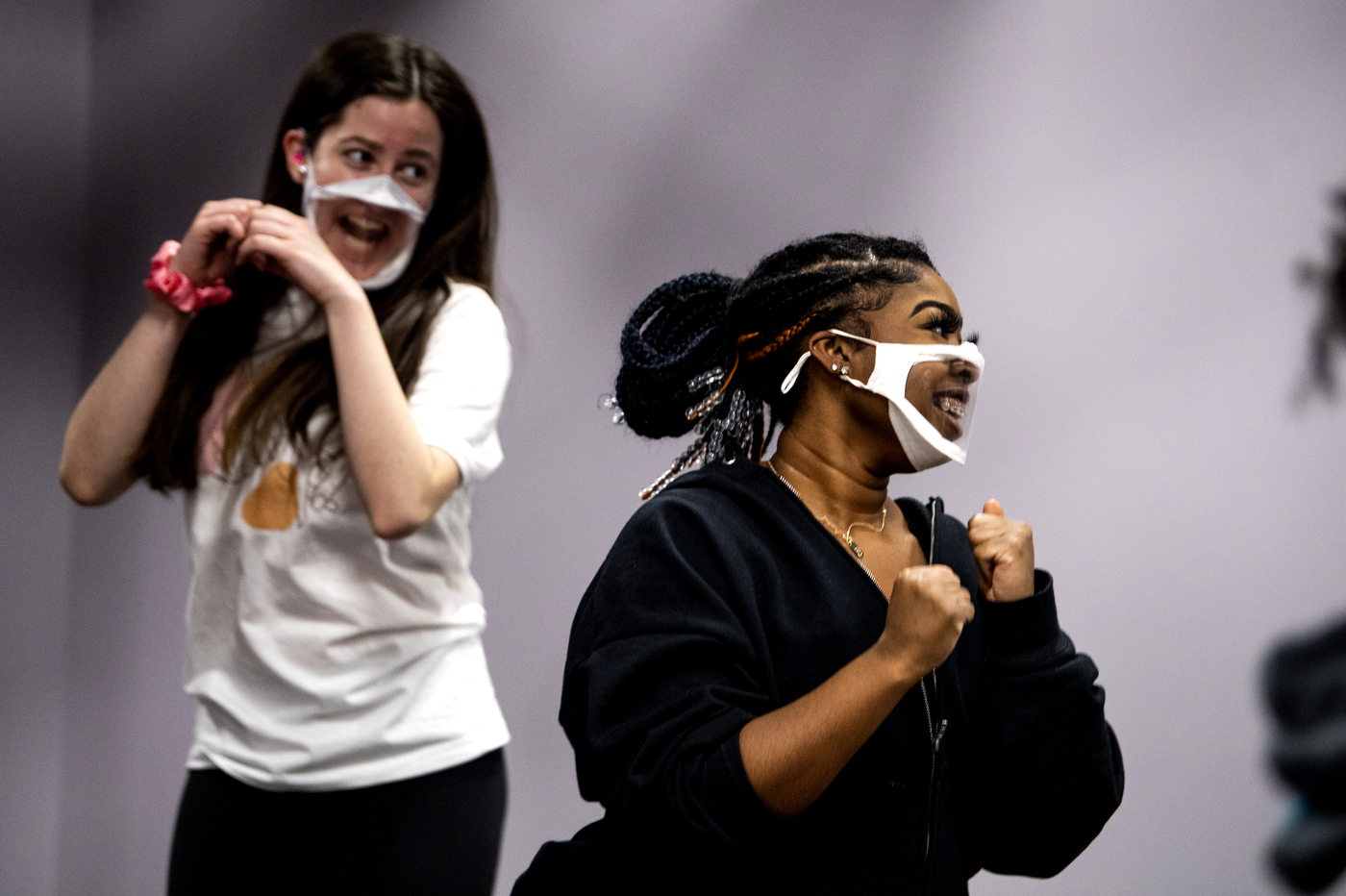
Key representatives of Northeastern’s Bouvé Institute of Health Equity and Social Justice Research will be on hand after the April 6 performance to discuss the organization’s mission and how their work connects to “This is Treatment.”
Inclusion is another main theme of the play, says Meghann Perry, who is co-directing—and that includes the audience and cast. Perry says audience members will be seated close to the stage and actors. They’re figuratively invited to mingle with the cast, just as members from the Roxbury and Mission Hill neighborhoods, which weave into the Northeastern community, were invited to get involved in the production.
“We want the audience to feel like they’re in treatment. We want the audience to feel like they’re in the group room with us, so that they really feel not just the suffering and the struggle and the pain, but the incredible triumphs and the incredible resilience of these women,” says Perry, who also struggled with addiction in her own life.
On a recent Friday night during rehearsals, the actors worked on the physicality they’ll need to embody their characters, shivering and fidgeting as reflections of drug withdrawal symptoms.
A research team led by Dr. Dani Snyder-Young, assistant professor in the Department of Theatre, will be studying the impacts of the production on audiences. Those in the audience ages 18 and older can fill out an anonymous survey weighing in on how the production’s themes of empathy, understanding, and resilience impacted them.
Addison still doesn’t consider the play finished, even though she’s directed many versions of the all-female musical.
“There’s been several iterations of the show. I’m still rewriting things now, because that’s just the nature of things and they change,” says Addison. As she continues to heal, she is able to bring more perspective and experience to the productions.
“There are certain aspects of the show that I couldn’t get to for years because of the things that I had not worked through yet. Some of these moments, I couldn’t write about them until last year,” says Addison.
“There are tears embedded in the fabric of the work,” she says. “It’s been just this really incredibly beautiful, healing journey.”
Both Addison and Perry say the return to live theater helps emphasize the power of connection, not only as an antidote to addiction, but as a necessity for everyone emerging from the isolating effects of the pandemic.
“When we say recovery, so many people think, ‘addiction recovery.’ Well, to me, you can be recovering from anything. We’re all recovering from COVID. We’re all in different stages of that process, and we’re still living with COVID, just like those with substance-use disorders are living in recovery,” says Perry.
And that is the overall message of “This is Treatment,” a performance on a bare-bones set that will force the audience to focus on the women and their work to get better.
“All of us have the right to heal, including folks that haven’t had the chance to see themselves represented,” says Addison, adding a message for her 13-year-old self: “And now, they’ll also know that they can write a show, they can heal as well, and then they can find help should they want it.”
For media inquiries, please contact media@northeastern.edu.




